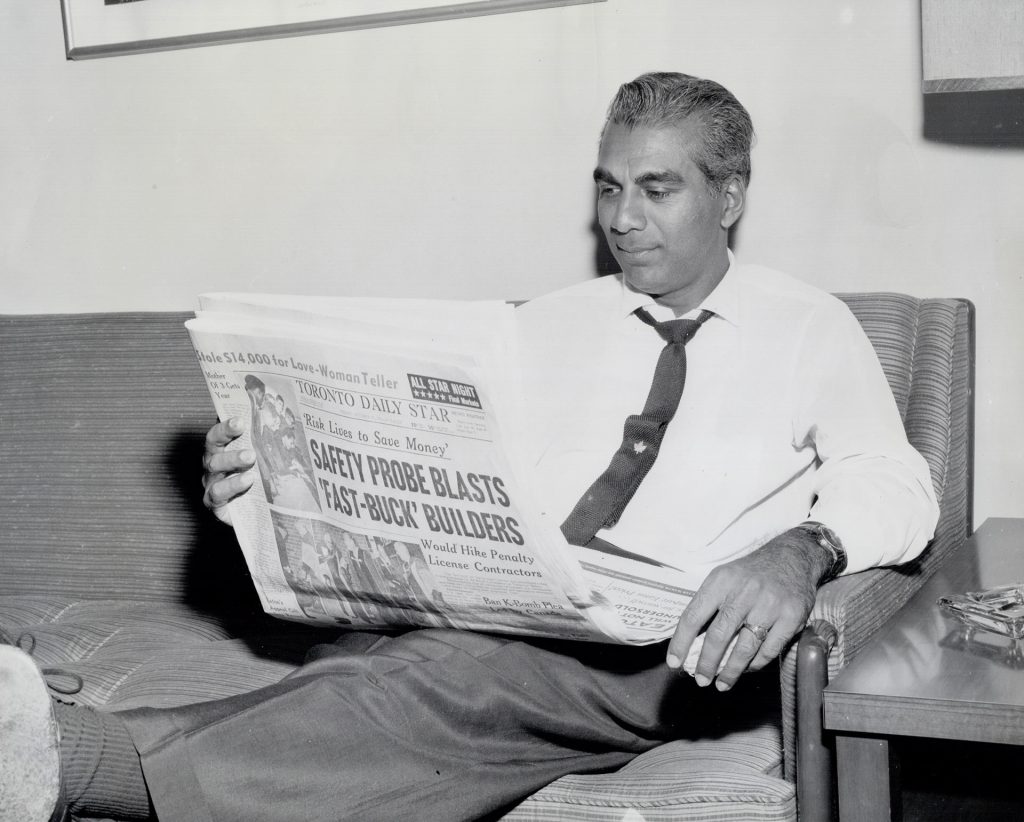RIO DE JANEIRO, BRAZIL – Newly released documents of the US intelligence agency CIA disclose the extensive scope of an influential operation in British Guiana in the years between 1961 and 1964.
The operation was directed against the Social Democratic politician Cheddi Jagan, who was the Prime Minister of the South American colony as of 1961.

Jagan, whose parents had come from India, had studied in the USA and co-founded the People’s Progressive Party (PPP). When the PPP won the elections in 1953, the British army intervened and ended Jagan’s mandate after only 133 days.
Prime Minister Winston Churchill had believed that Jagan was a Marxist-Leninist, but there was no evidence to support this claim. Jagan was initially imprisoned and was not allowed to leave the capital Georgetown for three years.
After the elections in August 1961, the PPP returned to power and Jagan succeeded in taking up his second term as Prime Minister.
The National Security Archive, a research and archiving facility at George Washington University, has now released a set of documents. These documents show that the US government discussed how the Social Democrat could be removed from office.
Prime Minister Jagan met with US President John F. Kennedy in October 1961. He compared himself with the British Social Democrat Aneurin Bevan, who had set up the National Health Service after the Second World War.
Politicians in Washington tried to coordinate their overthrow plans with the British government. Riots in 1962 served as a catalyst for the influence operation.
The PPP government had proposed an austerity budget, which sparked discontent among large sections of the population, particularly among trade unionists.
US Secretary of State Dean Rusk wrote to his British counterpart that a way needed to be found to put an end to Jagan’s “Marxist-Leninist policy”.
Discussions then ensued within the US administration, but also with the British government, on how this goal could be achieved.
The CIA secret service stationed spies in the country, Americans pledged opposition politicians to a reform of the electoral law, and US trade unions supported the small country’s opposition-oriented unions.
In addition, Kennedy’s national security adviser gave the go-ahead for Forbes Burnham’s paramilitary training of opposition People’s National Congress (PNC) cadres.
Kennedy adviser Arthur M. Schlesinger Jr. considered Burnham more politically acceptable to the US than Cheddi Jagan. This was a miscalculation, as was to become apparent later.
With extensive US assistance, an electoral law suitable for the opposition and extremely agreeable foreign constituencies, the PNC and another small opposition party succeeded in winning the 1964 elections.
The British colonial governor, who remained in office, then entrusted Burnham with the task of forming a coalition government, which he did. Two years later, 1966, Guyana achieved independence.
While US union support had been known for some time, the newly released documents disclose the talks between US and British government officials regarding the CIA operations in the country.
For the US and Britain, this operation turned out to be an own goal, as Burnham tried to establish a Guyanese socialism from the 1970s onwards, closely aligned with the Soviet Union and established exclusive relations with North Korea.
Cheddi Jagan was eventually elected President of an independent Guyana, serving from 1992 until his death on February 15th, 1997.

